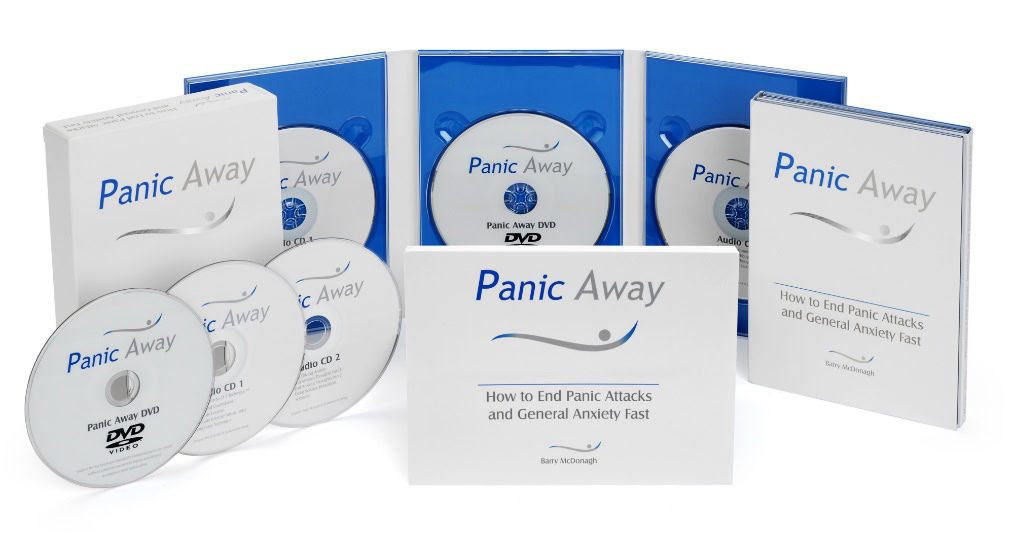Review: Overcoming OCD Anxiety with Panic Away
In today’s fast-paced world, mental health concerns like obsessive-compulsive disorder (OCD) have become increasingly prevalent. For individuals grappling with OCD, managing panic attacks can be a daunting challenge.
One resource that has gained attention in this realm is the “Panic Away For OCD Anxiety”. Authored by Barry McDonagh, this book offers strategies purported to help individuals overcome panic attacks and anxiety.
Panic attacks, often triggered by overwhelming anxiety and intrusive thoughts, can significantly disrupt daily life and impair functioning. Therefore, the quest for effective solutions to alleviate these distressing episodes is paramount.
However, the effectiveness of such approaches can vary from person to person, and what works for one individual may not necessarily work for another.
While some may find relief and empowerment through the techniques outlined in the Panic Away program, it’s essential to approach such resources with a critical mindset and a willingness to explore various treatment options for both OCD and anxiety disorder.
Additionally, consulting with mental health professionals can provide personalized guidance and support tailored to one’s specific needs and circumstances.
Understanding OCD-Related Panic Attacks
An OCD panic attack is a sudden and intense episode of overwhelming fear and anxiety experienced by individuals with obsessive-compulsive disorder (OCD).
Unlike traditional panic attacks (Generalized Anxiety Disorder) , which may occur without any apparent trigger, OCD-related panic attacks are often directly linked to the obsessive thoughts and compulsive behaviors characteristic of OCD.
In OCD, individuals grapple with intrusive thoughts, images, or impulses (obsessions) that cause significant distress and compel them to engage in repetitive behaviors or mental rituals (compulsions) aimed at reducing anxiety or preventing perceived harm.
When these obsessions become particularly distressing or overwhelming, they can trigger panic attacks.
The role of OCD panic attacks in the overall experience of OCD is multifaceted. Firstly, they serve as acute manifestations of the underlying anxiety and distress associated with obsessive thoughts and compulsive behaviors. These attacks can intensify the individual’s sense of helplessness, fear, and loss of control, reinforcing the cycle of OCD symptoms.
What is Panic Away?

Panic Away is a self-help program designed to assist individuals in overcoming panic attacks, anxiety, and phobias. Developed by Barry McDonagh, it offers a holistic approach to managing and alleviating symptoms associated with anxiety disorders and panic attacks.
1. Techniques for Panic Attacks:
Panic Away provides techniques and strategies aimed at interrupting and treating panic attacks when they occur.
These techniques often focus on shifting attention away from fearful thoughts and bodily sensations, thereby reducing the intensity of panic episodes and general anxiety.
2. Cognitive-Behavioral Techniques:
The panic away program incorporates cognitive-behavioral techniques to help individuals identify and challenge worst fears coming true contributing to anxiety and panic disorder.
By restructuring thought patterns and adopting healthier coping mechanisms, individuals eliminate anxious thoughts, better manage anxiety triggers and end panic attacks.
3. Exposure Therapy:
Panic Away may include elements of exposure therapy, which involve gradual and systematic exposure to feared situations or triggers.
Through repeated exposure, individuals can desensitize themselves to anxiety-provoking stimuli, ultimately reducing the fear response and improving overall functioning.
4. Mindfulness and Relaxation:
The program teaches the importance of mindfulness and relaxation techniques in managing anxiety and to stop panic attacks.
Practices such as deep breathing, progressive muscle relaxation, and mindfulness meditation are commonly integrated to promote calmness and emotional regulation.
5. Support and Community:
Panic Away may offer access to online forums, support groups, or communities where individuals can connect with others experiencing similar challenges.
This sense of community and peer support can provide encouragement, validation, and motivation throughout the recovery process.
6. Self-Help Resources:
In addition to the core program, Panic Away may offer supplementary resources such as audio recordings, worksheets, and educational materials to support individuals in their journey towards recovery.
These resources can enhance understanding, reinforce learning, and provide ongoing guidance beyond the initial program.
Overall, Panic Away aims to empower individuals with the tools, communicating psychological techniques, and support necessary to break free from the grip of panic attacks and reclaim their lives from anxiety.
Does Panic Away Work for OCD Anxiety Attacks?
Panic Away may offer some helpful techniques and strategies for managing anxiety and panic attacks, which could potentially benefit individuals with OCD-related anxiety attacks.
However, it’s important to note that OCD anxiety attacks have specific characteristics and triggers that may require tailored interventions beyond those typically addressed in panic-focused programs like Panic Away.
While Panic Away may provide general coping mechanisms for anxiety, including deep breathing exercises, cognitive restructuring, and exposure techniques, it may not fully address the unique obsessions and compulsions associated with OCD.
Individuals with OCD often experience intrusive thoughts and engage in repetitive behaviors aimed at alleviating anxiety or preventing perceived harm.
How Does Panic Away Compare to Traditional OCD Anxiety Treatments?
Panic Away, with its focus on managing panic attacks and anxiety, offers some overlap with traditional treatments for Obsessive-Compulsive Disorder (OCD) anxiety. However, there are key differences to consider when comparing Panic Away to traditional OCD anxiety treatments.
1. Focus and Approach:
Panic Away primarily targets panic attacks and generalized anxiety, offering techniques such as deep breathing, cognitive restructuring, and exposure therapy. Its approach is broader and may not specifically address the unique obsessions and compulsions characteristic of OCD.
Traditional OCD anxiety treatments, such as Exposure and Response Prevention (ERP) therapy, directly target OCD symptoms by exposing individuals to feared situations or triggers and preventing the associated compulsive behaviors. ERP is highly specific to OCD and aims to reduce symptom severity and overcome anxiety.
2. Customization and Specificity:
Panic Away provides a general framework for managing anxiety and panic attacks, but it may lack the customization needed to address the individualized nature of OCD symptoms.
Traditional OCD anxiety treatments are highly tailored to each individual’s specific symptoms, triggers, and severity of illness. Therapists work collaboratively with clients to develop personalized treatment plans that address their unique needs and challenges.
3. Comprehensive Treatment:
While Panic Away offers self-help techniques and resources, it may not encompass the comprehensive approach needed to effectively manage OCD symptoms in the long term.
Traditional OCD anxiety treatments often involve a combination of therapy modalities, including ERP therapy, cognitive-behavioral therapy (CBT), and medication (if necessary), to address OCD symptoms from multiple angles and promote lasting recovery.
Conclusion
Panic Away can be a valuable resource for individuals experiencing panic attacks and generalized anxiety, providing techniques to manage symptoms and promote relaxation.
Barry McDonagh teaches how to stop a panic attack in 21 seconds and reduce feelings of general anxiety in less than 7 minutes.
However, when comparing Panic Away to traditional OCD anxiety treatments, it’s important to recognize that they serve different purposes and may not fully address the specific challenges of OCD.
For individuals with OCD, seeking evidence-based treatments such as ERP therapy, tailored to their unique symptoms and needs, is crucial for achieving long-term symptom relief and improved quality of life.
Consulting with a mental health professional can help individuals explore their options and develop a comprehensive treatment plan that best meets their needs.






